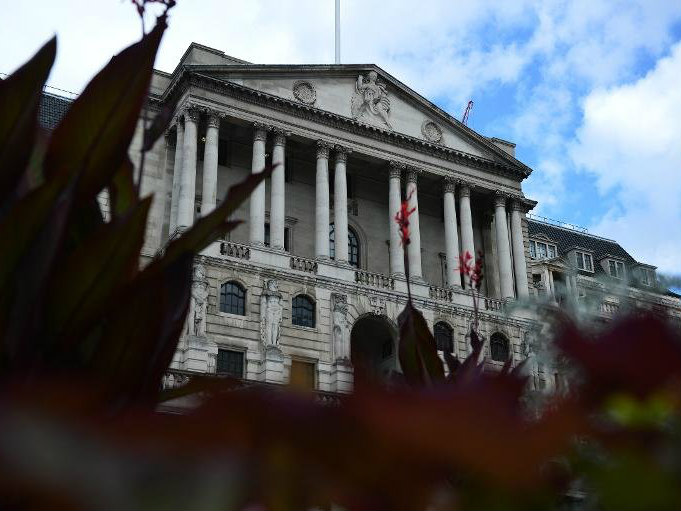The Bank of England is set to keep interest rates at a record-low 0.50 percent this week, as it eyes slowing inflation before next year’s election, analysts say.
Both Britain and the separate eurozone are worried about unduly low inflation, but this is a much bigger problem in the single currency area where growth is far less buoyant.
The upshot is an overall climate of talk that monetary conditions in Britain could be tightened next year, while in the eurozone they may soon be eased.
The Bank of England’s rate-setting Monetary Policy Committee (MPC), which concludes its two-day September meeting on Thursday, is likely to leave its quantitative easing (QE) cash stimulus at £375 billion ($622 billion, 473 billion euros).
The MPC was divided in August for the first time in more than three years, with two policymakers breaking ranks to call for a quarter-point rise from 0.50 percent — where rates have stood since March 2009.
The panel voted 7-2 in favour of no action, citing “insufficient evidence” of inflationary pressures.
– British inflation slows –
Policymakers will be mindful this month of a further easing of inflation, which has held below the bank’s official 2.0-percent target so far this year.
Britain’s 12-month inflation slowed to 1.6 percent in July from 1.9 percent in June.
The central bank hinted last month that an interest rate rise might have to wait for as long as pay lags behind a robust recovery of the economy.
The BoE, led by Canadian Mark Carney, halved its forecast for wages growth this year to just 1.25 percent from an earlier estimate of 2.5 percent.
He added: “There has not been an obvious trigger over the last month for any MPC members to change their vote at September’s meeting.”
Many economists do not expect an increase before Britain’s general election in May 2015.
Markets are nevertheless watching for any signs of when the BoE will begin to increase rates as Britain’s economic recovery outpaces sluggish growth in the neighbouring eurozone.
The British economy grew by 0.8 percent in the second quarter of this year, matching its output from the previous first three months.
Growth in the 18-country eurozone, however, ground to a halt in the second quarter, dragged down by France and Germany.
– ECB mulls QE stimulus –
Separately on Thursday, the European Central Bank (ECB), currently operating a record low key rate of 0.15 percent, will reveal the outcome of its latest interest rate gathering in Frankfurt amid growing anxiety over the economic outlook.
Markets are looking to the ECB to open the QE cash floodgates after the latest consumer price data showed the eurozone, with inflation of 0.3 percent, was flirting with deflation, analysts said.
The Bank of England launched its quantitative easing programme in March 2009, under which it created cash to buy previously issued assets such as government and corporate bonds in order to stimulate lending and economic activity, and keep inflation on target.
The BoE, which has bought a huge slice of the national debt, pumped a total of £375 billion into the economy under QE, but the last instalment of asset purchases was completed in late 2012.
Britain is a member of the European Union but not the single currency eurozone bloc, which nevertheless is the nation’s biggest trading partner.

COMMENTS
Please let us know if you're having issues with commenting.